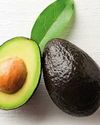
The appearance of food is important, but it is the flavor that ultimately determines its quality and acceptability. Natural flavouring materials such as spices, essential oils and fruit juices have been used for long in food preparations but as their supply has not kept up with the demand, with a consequent rise in their cost, natural flavouring agents have been largely substituted by synthetic ones. Thousands of these synthetic compounds are now being used as food additives. There are four basic tastes: salty, sweet, sour and bitter.
Salty: Sodium chloride is the only salt that has a pure salty taste. Besides imparting flavor to food, it is also an essential nutrient. Other salts have different tastes, e.g., some iodides and bromides are bitter while some salts of lead and beryllium are sweet.
Sugar: Sugar is used more to impart sweetness than flavor to food. Fructose present in honey is the sweetest sugar followed by sucrose and glucose, whereas lactose in milk is slightly sweet and gives less flavour. Natural sweet compounds are generally polyhydroxy compounds with a straight-chain structure, such as sugars and the hexahydroxy cyclic alcohols, mannitol and sorbitol. Diverse compounds, such as saccharin, some peptides and cylcamates are also sweet.
Sourness: Sourness of food is due to the presence of organic acids of which citric, tartaric and malic are the most common. Acetic acid produced by fermentation of alcohol is common in processed fruits. Ascorbic acid is abundantly present in fruits and vegetables. Oxalic acid found in spinach and phosphoric acid and its salts are often used in the food industry. Remarkably, the hydrogen ion is mainly responsible for sour taste. Except for oxalic acid, all other acids are weak acids and the degree of sourness is not proportionately related to the hydrogen ion concentration.
هذه القصة مأخوذة من طبعة March 2020 من Food Marketing & Technology - India.
ابدأ النسخة التجريبية المجانية من Magzter GOLD لمدة 7 أيام للوصول إلى آلاف القصص المتميزة المنسقة وأكثر من 9,000 مجلة وصحيفة.
بالفعل مشترك ? تسجيل الدخول
هذه القصة مأخوذة من طبعة March 2020 من Food Marketing & Technology - India.
ابدأ النسخة التجريبية المجانية من Magzter GOLD لمدة 7 أيام للوصول إلى آلاف القصص المتميزة المنسقة وأكثر من 9,000 مجلة وصحيفة.
بالفعل مشترك? تسجيل الدخول

Avocados: Health Benefits And Sustainable Cultivation
ATTRACTIVE GROWTH SEGMENT - In only a few years, the avocado has developed from being a rather a and has become an integral part of modern cuisine and in restaurants throughout Europe and beyond.

UFlex to Showcase Innovative and Sustainable Printing and Packaging solutions at DRUPA 2024
U Flex Limited, India's largest multinational flexible packaging and solutions company, is participating in DRUPA 2024, the premier global trade fair for print and packaging innovations, scheduled to take place in Dusseldorf, Germany from March 28 to June 7, 2024.

Hubergroup and Manroland Goss unite for Sustainable Packaging Innovation
Hubergroup, a global specialist in and chemicals, has partnered with manroland Goss web systems, a leading provider of web offset printing solutions, in a strategic collaboration.

Technological Advancements in the Premium Flavour, Extract and Concentrate Industry
Food Marketing & Technology Magazine had the privilege of hosting the fourth edition of their business webinar on “Technological Advancements in the Premium Flavour, Extract and Concentrate Industry” with Paul Ahn, Global Sales Manager, Flavourtech.

Flavourtech's Origins: From Wine to Worldwide Flavor Solutions
LEON SKALIOTIS, CEO of Flavourtech - Discover how Flavourtech, founded over 40 years ago by an innovative winemaker in Australia, evolved from addressing grape juice desulphiting to revolutionizing flavor extraction and concentration across various industries.

How CPG Companies Can Adopt Better Sustainable Packaging Practices in 2024
Sustainability has gone mainstream. With more switching to consumers environmentally friendly brands, it's become a central theme across all industries.

The Evolution of the Protein Value Chain Sustainable Protein Systems for a Growing World
As the world's population is on course to surpass ten billion by 2050, our food systems face the challenge of providing sustainable nutrition without further harming harming the planet. Animal-based diets and the reliance on animal-derived proteins are significant contributors to environmental degradation and public health issues. Not only is the global population increasing, but the expanding middle class in developing nations is driving a surge in protein demand, intensifying the strain on our environment.

Implementing the Technological Intelligence in Agricultural Produce
It is estimated that by 2050 the I world's population will be around 10 billion. From employment generation to contribution to National Income, agriculture is important to all of us as agricultural produce is the core on which we survive. It contributes a significant portion to the economic prosperity of the developed nations and plays an active part in the economy of the developing countries as well.

Cocoa Crises: A Sweet Industry's Bitter Challenge
As a pastry chef and entrepreneur running a small-scale baking business, I have always believed in the magic of cocoa. From the velvety richness of couverture chocolate to the deep, earthy notes of cocoa powder to the creamy allure of cocoa butter, these ingredients are the essence of our creations.

Ethylene Oxide (ETO) Detection in Ready-Made Spice Mixes: Ensuring Food Safety
INTRODUCTION - In the world of culinary delights, ready-made spice mixes hold a cherished place, adding convenience and flavour to countless dishes. However, recent concerns over food safety have brought to light the presence of ethylene oxide (ETO) in some of these products.